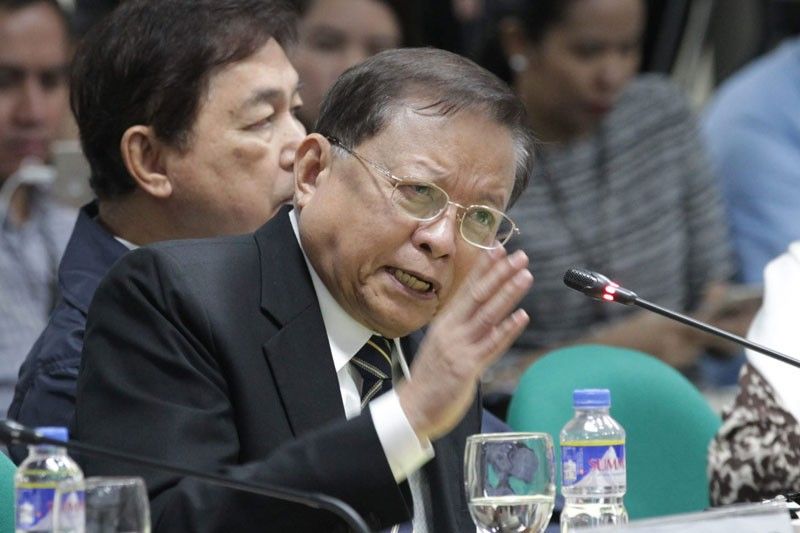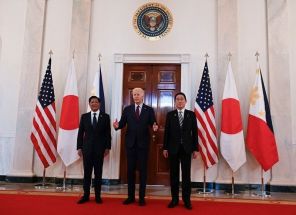Concom eyes 3 supreme courts

MANILA, Philippines — Three supreme courts under a federal form of government.
The consultative committee (Concom) chaired by retired chief justice Reynato Puno, which is tasked with drafting a new constitution, has made this proposal for amendments in provisions involving the judicial branch.
A draft of the sub-committee on the judiciary portion of the new charter obtained by The STAR showed three different high courts with separate functions: the Supreme Court (SC), the Supreme Constitutional Court (SCC) and the Supreme Administrative Court (SAC).
The SC, which resembles the current high tribunal composed of a chief justice and 14 associate justices, will keep its power of review and jurisdiction over civil and criminal cases from lower courts.
“The Supreme Court shall have the power to exercise original jurisdiction over petitions for certiorari, prohibition, mandamus, quo warranto and habeas corpus; and over cases affecting ambassadors, other public ministers and consuls,” the draft read.
The SCC, on the other hand, will be tasked to resolve all cases involving interpretation of the Constitution. It will have jurisdiction on constitutional issues in federal laws including presidential decrees, proclamations and orders; treaties and international or executive agreements; impeachment cases and other cases of pure question of constructionality.
The SCC will be composed of a presiding justice appointed by the SC with six associate justices, including two appointees of the president, two by Congress and two by the SC. Their retirement age will be raised to 80 years old from the current 70 years old under the 1987 Constitution.
Lastly, the SAC will have appellate and final jurisdiction over administrative cases. It will have the power to review all cases decided by the Office of the Ombudsman that will be renamed the Central Administrative Court, administrative decisions of offices that do not involve constitutional issues, alleged violations by administrative authorities including independent administrative tribunals, conflicts of jurisdiction among lower and administrative tribunals, disputes between federal and regional government; and other similar administrative issues.
The SAC will be composed of nine justices – a chairman, vice chairman and five administrative justices appointed by the SC and two administrative justices appointed by the Senate and House of Representatives.
All three high courts will each be required to submit annual reports to the president and Congress.
The eligibility for the justice position in each court will remain the same – natural-born citizen, at least 40 years old, with at least 10 years experience as judge or private law practice and with proven competence, integrity, probity, intelligence and independence.
The proposed constitution, however, added a prohibition for members of SCC.
“After his or her tenure, no justice shall be eligible to run in any elective public position in the immediately succeeding elections,” it said.
It also amended the process for removal of sitting justice from office.
“A justice of the Constitutional Court may only be removed from office on impeachment for, and conviction of, culpable violation of the Constitution, treason, bribery, graft and corruption, other high crimes or betrayal of public trust. The justice shall be impeached upon majority vote of the Supreme Court sitting en banc as an impeachment court,” the draft stated.
This is different from the current Constitution where an impeachment trial is vested upon the Senate.
The draft was consolidated by Concom member lawyer Rodolfo Robles and approved by member and sub-committee chair retired SC justice Eduardo Nachura.
Nachura said the draft new constitution would make the judiciary independent from politicians.
- Latest
- Trending






























